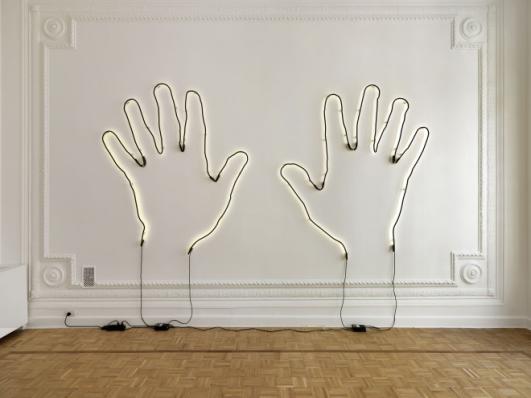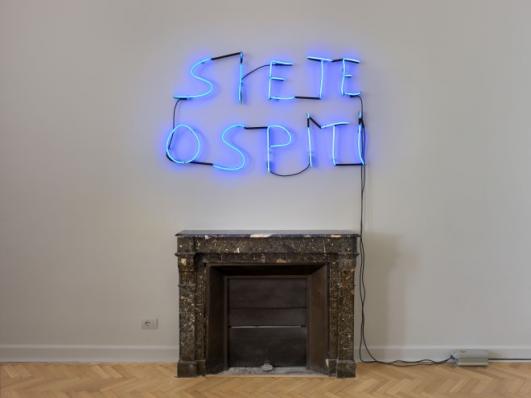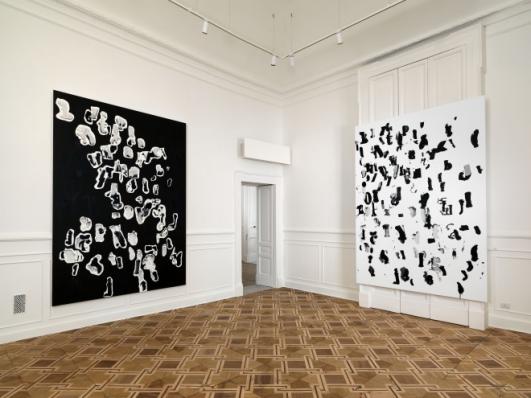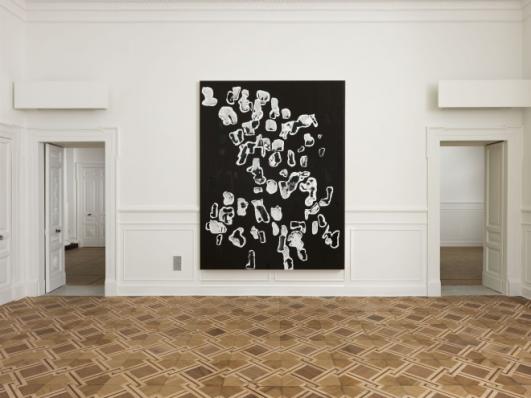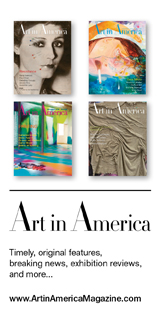Glenn Ligon: Tutto poteva, nella poesia, avere una soluzione / In poetry, a solution to everything
24 April - 28 July ‘18
Glenn Ligon's first solo exhibition in Italy borrows its title from a line in Pier Paolo Pasolini's poem Ma Era L'Italia Nuda E Formicolante/But It Was a Naked and Swarming Italy, in which he depicts the privations and poetic possibility of the country during the post-war period. In the exhibition, Ligon will feature a new series of silkscreen and ink marker paintings based on abstracted letter forms, two neons which address the Neapolitan setting of the exhibition, and two paintings from his iconic Stranger series, made with oil-stick and coal dust, the text of which he transcribed from James Baldwin's 1953 essay Stranger in the Village.
Unlike most of his other works on canvas, the silkscreen and ink marker paintings, which Ligon will premiere in Naples, do not start with a specific text but with letters as their primary element. To create them the artist used images of his own etchings and stencil- and-ink drawings, creating large scale silkscreens which he then printed on canvas in black etching ink, each screen overlapped to create a dense pattern of letter-based shapes. The resulting paintings, in a logic not dissimilar to Franco-Belgian artist and poet Henri Michaux's, who, in his ink drawings, was seeking a "release from words", and to discover a "new language, spurning the verbal", or Swiss artist Paul Klee's arrangements of letters in his famed Beginning of a Poem (1926), Ligon seeks in his new works an even purer, more abstracted form of expression, which goes beyond language and mere interpretation. In Klee's words: "The genesis of writing is a very good analogy for movement. The artwork too is a form of genesis, it is never experienced as a product."
Two works from the Stranger series are placed in dialogue with his new silkscreen paintings. The text is taken from Baldwin's 1953 essay, which recounts the author's experience of staying in a remote Swiss village while working on a novel. The other inhabitants of the village, many having never seen an African American before, treat him with a distant curiosity, more as an object than a person, which Baldwin likened to the African American experience at home in his native U.S.A. Ligon has rendered the text of the essay in coal dust and oil-stick, pushing the paintings toward abstraction while giving the text a palpable density and weight.
Further works in the exhibition punctuate and reframe Ligon's investigation of language and abstraction while referring to a Neapolitan context. Two neon sculptures, Siete Ospiti (You Are Guests), which transcribes in blue letters a Napoli football fan's banner which was displayed at a rival Bologna game, and Notes for a Poem on the Third World, a large scale piece based on a tracing of the outlines of the artist's hands in black-painted neon and takes its inspiration from an unrealized film project by Pasolini that was to be shot in India, Africa, the Arab countries, Latin America, and the "black ghettoes of the United States." Pasolini claimed that it was the "discovery of the elsewhere" that drove his identification with the struggles of non-Western peoples and people on the margins of the West. Yet Ligon's work posits migration and other forces that have changed the demographic and political trajectories of countries such as Italy, complicating notions of margin and centre, of who "belongs" and who is the "guest."
Thomas Dane Gallery, Via Francesco Crispi, 69, Napoli
